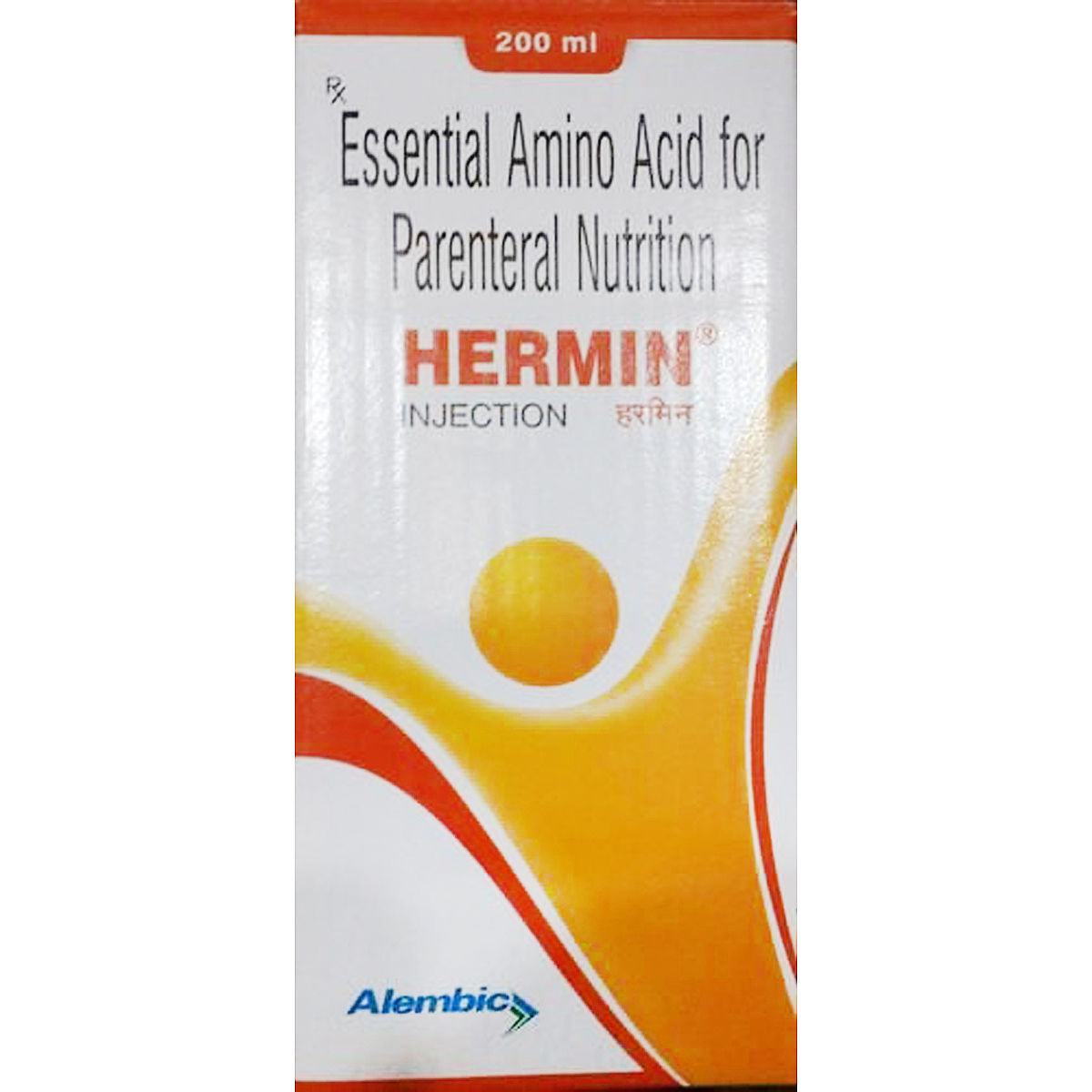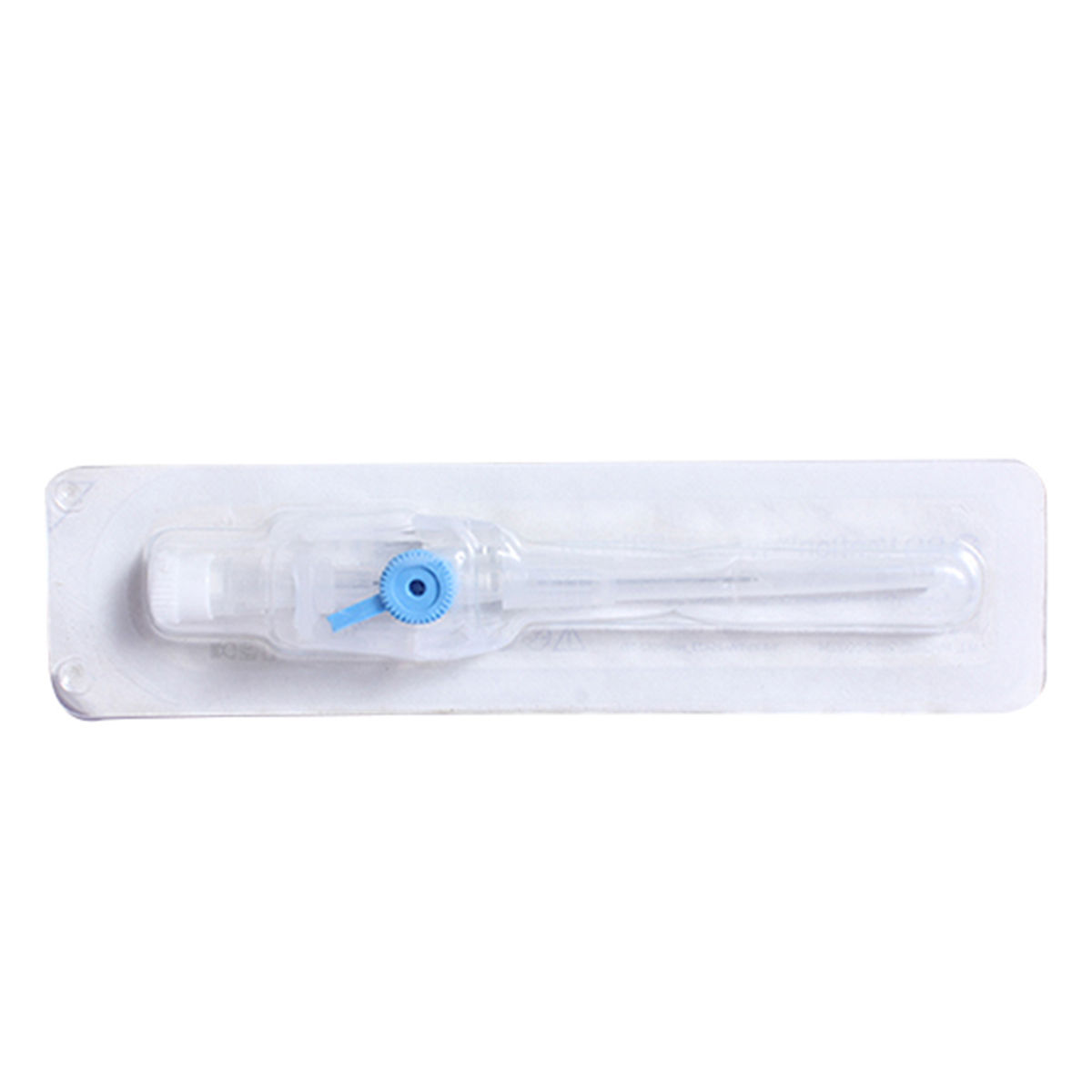Hermin Injection 200 ml


₹788.4*
MRP ₹876
10% off
₹744.6*
MRP ₹876
15% CB
₹131.4 cashback(15%)
Free Delivery
With Circle membership
(Inclusive of all Taxes)
This offer price is valid on orders above ₹800. Apply coupon PHARMA10/PHARMA18 (excluding restricted items)
Know Your Delivery Time
Provide Delivery Location
Available Offers
 Prescription drug
Prescription drugWhats That

Secure Payment

India's Most Trusted Pharmacy

Genuine Products
Manufacturer/Marketer :
Consume Type :
Return Policy :
Expires on or after :
About Hermin Injection
Hermin Injection is an infusion belonging to the group of amino acids. It is used in the delivery of parenteral nutrition in patients that cannot tolerate or take oral nutrition. Parenteral nutrition is a process by which nutritional products are infused into the body through a vein. It is usually carried out in terminal conditions.
Hermin Injection contains a combination of amino acids, namely glycine, l arginine, l histidine, l isoleucine, l lysine, l leucine, l methionine, l phenylalanine, l threonine, l tryptophan, l valine and sorbitol. Hermin Injection works by supplying the body with essential nutrients and energy.
Hermin Injection will be administered by a healthcare professional; do not self-administer. In some cases, Hermin Injection may cause certain common side effects such as fever, chills, body ache and redness at the injection site. Most of these side effects do not require medical attention and will resolve gradually over time. However, you are advised to talk to your doctor if you experience these side effects consistently.
Before taking this medicine, inform the doctor if the patient has any known pre-existing allergy to any of the contents of Hermin Injection or has had a severe allergic reaction following a previous dose of Hermin Injection . Avoid Hermin Injection in case of an inherited disorder of amino acid metabolism. Inform the doctor of the patient’s detailed medical history including any clotting problems, any chronic disease, neurological disease, HIV, high blood ammonia, low blood volume (hypovolemia), electrolyte disturbances, metabolic errors, kidney disease, liver disease or any disorder causing difficulty in passing urine. Consult your doctor before the use of Hermin Injection during pregnancy or breastfeeding.
Uses of Hermin Injection
Directions for Use
Medicinal Benefits
Hermin Injection is used for parenteral (intravenous) nutrition in patients that cannot tolerate oral nutrition. Hermin Injection contains a combination of amino acids namely glycine, l arginine, l histidine, l isoleucine, l lysine, l leucine, l methionine, l phenylalanine, l threonine, l tryptophan, l valine and sorbitol. Hermin Injection works by supplying the body with essential nutrients and energy.
How Hermin Injection Works
Storage
Side Effects of Hermin Injection
- Soreness and redness at the injection site
- Fever
- Chills
- Body pain
- Rash
- Catheter infection
- Clots
What if I have taken an overdose of Hermin Injection
Drug Warnings
Before taking this medicine, inform the doctor if the patient has any known pre-existing allergy to any of the contents of Hermin Injection or has had a severe allergic reaction following a previous dose of Hermin Injection . Avoid Hermin Injection in case of an inherited disorder of amino acid metabolism. Inform the doctor of the patient’s detailed medical history including any clotting problems, any chronic disease, neurological disease, HIV, high blood ammonia, low blood volume (hypovolemia), electrolyte disturbances, metabolic errors, kidney disease, liver disease or any disorder causing a difficulty in passing urine. Consult your doctor before the use of Hermin Injection during pregnancy or breastfeeding.
Diet & Lifestyle Advise
- Follow the diet you are suggested by the dietician.
- Keep your doctor informed if you are planning to or are pregnant.
- Terminal illnesses can take a toll on anyone. Make sure you regularly see a therapist and take care of your mental health
- Meditation and yoga have also proven very effective in helping cancer patients maintain a healthy attitude and body.
- Joining a support group of like-minded people or patients suffering from a similar condition can help tremendously.
Habit Forming
Therapeutic Class
Alcohol
Caution
There is not enough literature to explain the effects of alcohol on Hermin Injection . Please consult your doctor before use.
Pregnancy
Caution
There is not enough literature to explain the effects of Hermin Injection on pregnancy. Please consult your doctor in case of any concerns.
Breast Feeding
Caution
There is not enough literature to explain the effects of Hermin Injection on breastfeeding. Please consult your doctor in case of any concerns.
Driving
Unsafe
Not Applicable
Liver
Caution
Hermin Injection should be used with caution in those with established liver disease.
Kidney
Caution
Hermin Injection should be used with caution in those with established kidney disease.
Children
Caution
There is not enough literature to explain the effects of Hermin Injection in children. Exercise caution before using Hermin Injection in children below 12 years of age. Please consult your doctor in case of any concerns.
FAQs
Country of origin
Manufacturer/Marketer address
Customers Also Bought
Disclaimer
Author Details
We provide you with authentic, trustworthy and relevant information
Reference
- https://www.medicines.org.uk/emc/product/1877/smpc#gref
- https://www.healthline.com/health/parenteral-nutrition#risks
- https://www.drugs.com/cdi/amino-acid-injection.html
- https://www.rxlist.com/pancreatic_cancer_slideshow/article.htmhttp://www.nutritioncare.org/about_clinical_nutrition/what_is_parenteral_nutrition/















